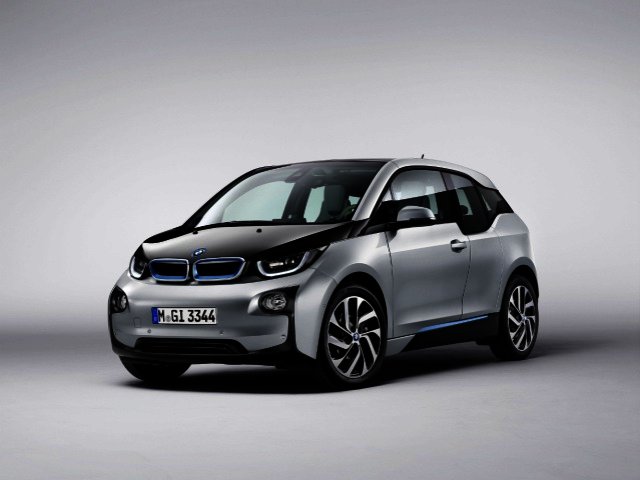There are tipping points in history when different trends and forces come together, forever changing our view of the future. Two of the most notable have been the Industrial Revolution and the Digital Revolution. The third, being brought about by the convergence of IT, a world of dwindling natural resources and a demand for energy, is leading to the emergence of hybrid and electric technologies.
This is especially evident in the transport sector, and more specifically the personal motoring industry. It is here that electric or plug in hybrid electrical vehicles will make their mark. In South Africa, this meeting of trends is taking the form of technologies developed by BMW and their unique local SME partner, GridCars. Together, they are tackling challenges around reducing the impact of electricity in cars - the affordability of the vehicles, easy access to refuelling sources, and ultimately increased mobility for all.
Says Ethel Nyembe, head of Small Enterprise at Standard Bank: “South Africans are often told that our country has little technical expertise. We do not, however, have to stand back from others when it comes to innovation. We may have a shortage of technical skills, but we do not have a lack of entrepreneurs. Where technical skills and entrepreneurship exist together, we have a vibrant small business sector that is working with big business to achieve big results. This is especially the case where the activities, because of their very nature, are focused on small, vital niche areas of the national economy.”
A recent episode of the Standard Bank-supported The Growth Engines series, featuring BMW South Africa and GridCars, vividly expressed this point. “We in South Africa will also follow the early adopter technology curve that applies to electric or plug in hybrid electrical vehicles. Once we have economies of scale and market acceptance, costs will come down. The challenge is ultimately to achieve a balance between mobility and utility,” says Deena Govender, head of Customer Relations at BMW South Africa.
The factors regarding price will resolve themselves as market demand increases. The challenge, however, lies in developing unique solutions for charging the vehicles. It is here that BMW’s partnership with GridCars is beginning to deliver the goods. At the centre of creating a charging system for BMW - and ultimately South Africans - is owner of GridCars, Winstone Jordaan, who squarely beat out international competition to give BMW South Africa a locally-engineered solution to supplying electrical charging points.
BMW had already touched base with a European eMobility supplier and was told that they could only deliver what BMW required in about six months. Jordaan met with BMW locally, promised results in 30-days, and delivered.
The Pretoria-based physicist used his skills to get his company to tackle the most common problems facing refuelling points, and came up with unique solutions that have been entirely self-funded. The company now employs eight people and is the only company in South Africa in this field.
"The term eMobility is used universally to refer to anything involved with charging electric vehicles and the systems where the vehicle technology, energy and IT meet,” says Jordaan.
GridCars has used an open-charge point protocol to develop software that feeds both into the hardware from the front-end, and from the back-end to the aggregator, which houses all the information needed for BMW.
The system will ultimately allow the driver of an electric vehicle to use in-car technology to identify where charge points are located, and also to book a charging slot exclusively for the vehicle. This is vital for a process that can take up to four hours when a battery is completely discharged. The objective, however, says Jordaan, is for a car to be on charge when it is not in use. In this way charge and range are maximised.
Another convenience of the GridCars solution lies in its billing system. The charge point acquires the vehicle and driver information and automatically consolidates all costs incurred on a monthly invoice, so that a single amount is paid by the driver.
The advantage of the billing system is that this occurs, even though electricity points may be owned and operated by different companies. In itself, this solves a major problem by allowing various suppliers to enter the market with charge points and reducing the volume of points required for a supplier to become viable.
“The pay-off for GridCars, and Jordaan’s faith in the development of their technology, will be fully realised when electric or plug in hybrid electrical vehicles become common on South Africa’s roads. The system will be available to every electric or plug in hybrid electrical vehicle entering the country, making the system streamlined and available to all.
This is a win-win situation for South Africa. Instead of having an environment where key technologies would have to come from Europe, all the development and installation will take place locally. We will be the winners through the creation of a new industry and the development of jobs in a technical arena - something that is vital to our continued economic growth,” says Nyembe.
The Growth Engines concludes on Business Day TV (DSTV channel 412) on Tuesday 7 July at 9:30pm, with repeats on Wednesday at 10:00am and Thursday at 2:00pm. To view previous episodes and in-depth articles on themes explored on the programme, log on at www.bizconnect.standardbank.co.za or www.bdlive.co.za/indepth/growthengines.





